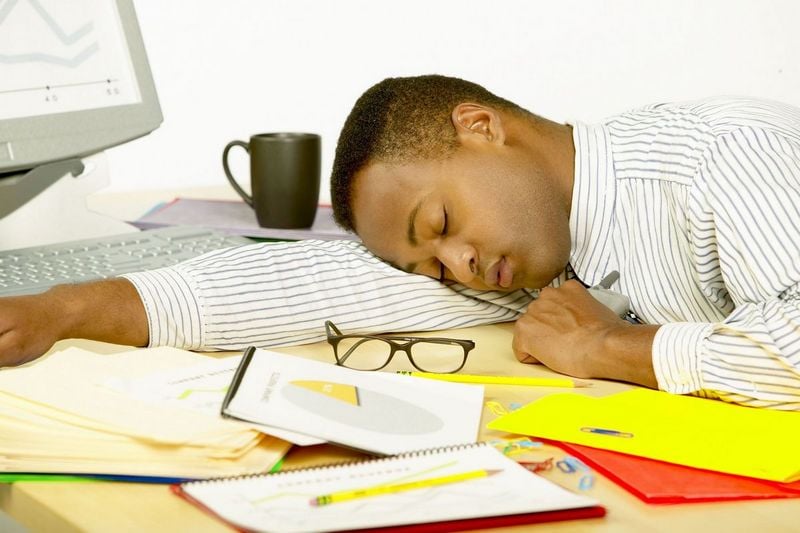As a team leader of the business desk of The Guardian newspaper years ago, I did everything to encourage my team members to work. I have always preferred encouraging or motivating people to the use force. I motivate people; I reinforce them positively to work; and create a jovial atmosphere to drown tiredness and pain.
On the desk, I also flaunted the old saying that hardwork does not kill. But one day, one of the team members rushed to me laughing, with an open newspaper in hand. “Breaking news, sir,” he said breathlessly.
“Give it to us,” I urged him on.
“This paper has reported the death of a Japanese worker from overwork!”
Advertisement
“Hardwork kills Japanese”
The desk roared! Laughter so loud and long that I didn’t have to talk.
And now, much older, more widely read, and having travelled around the world, I know that too much work over long hours kills. I know from studies of experts that eleven hours of work a day increases the chances of stroke, heart disease, and depression.
Advertisement
I am still a workaholic but now I know that long hours could mean eating late or less healthily; less sleep, exercise, de-stressing; and less time with people you care about.
It is said that the body responds to stress by pumping out hormones that may increase blood pressure, heart rate, and blood sugar. Over time, chronic stress contributes to emotional distress, obesity, heart disease, and a host of other health issues. Details later!
Typical Scenarios
If you are still not convinced, look at this: A study by the International Labour Organization, an agency of the United Nations, lists some typical scenarios:
Advertisement
“Mr A worked at a major snack food processing company for as long as 110 hours a week (not a month) and died from heart attack at the age of 34. His death was approved as work-related by the Labour Standards Office.
“Mr B, a bus driver, whose death was also approved as work-related, worked more than 3,000 hours a year. He did not have a day off in the 15 days before he had stroke at the age of 37.
“Mr C worked in a large printing company in Tokyo for 4,320 hours a year including night work and died from stroke at the age of 58. His widow received a workers’ compensation 14 years after her husband’s death.
“Ms D, a 22 year-old nurse, died from a heart attack after 34 hours’ continuous duty five times a month.”
Advertisement
The Japanese seem to be particularly prone to overwork, but around the world, about 20 percent of workers put in more than 45 hours a week, according to the Organization for Economic Cooperation and Development.
Scientifically proven effects
Advertisement
The following scientifically proven effects of long hours at work have been identified by experts. Working long hours:
Makes you fatter. While seated, you burn 50 fewer calories per hour than while standing. Multiply that over a 47-hour work-week, and sitters will have had to run nearly 4 miles to burn off the extra 2,350 calories. Not to mention the 6 pounds gained every year from office snacks.
Advertisement
Breaks your heart. Research has shown that those who spend four or more hours sitting per day have a 125 per cent increase in heart disease risk, and a 50 per cent increased risk of death from any cause
Causes diabetes. The Australian Diabetes, Obesity and Lifestyle Study, a study cataloging the health and fitness habits of 12,000 Australians, found that people with the “highest sedentary behavior” had a 112 percent increase in their relative risk of Type 2 diabetes, and that was only with four hours of watching television per day. A similar study of more than 4,000 civil servants found that those who spend less than 12 hours sitting down a week can decrease their risk of diabetes by 75 per cent, and that those who sit more than 25 hours per week increase the chance developing metabolic risk factors like “bad” cholesterol and insulin resistance.
Advertisement
Makes us depressed. According to researchers at University College in London, stressful work conditions, including long work hours, can double your risk of depression.
Stresses us out: According to the Attitudes in the Attitudes in the American Workplace VII survey, 80 per cent of workers feel stress on the job, and 25 per cent have felt like screaming or shouting because of job stress; 14 per cent even said that they had felt like striking a co-worker in the past year, but didn’t. The United States has the highest workplace crime rate of any industrialized nation. According to the Occupational Health & Safety Administration, there are more than 500 workplace homicides every year. And all of that stress is taking a toll on our bodies, according to the Centres for Disease Control and Prevention: Perpetual stress “increases the rate of wear and tear to biological systems,” contributing to back and muscle pain, headaches and exhaustion.
Add a comment






